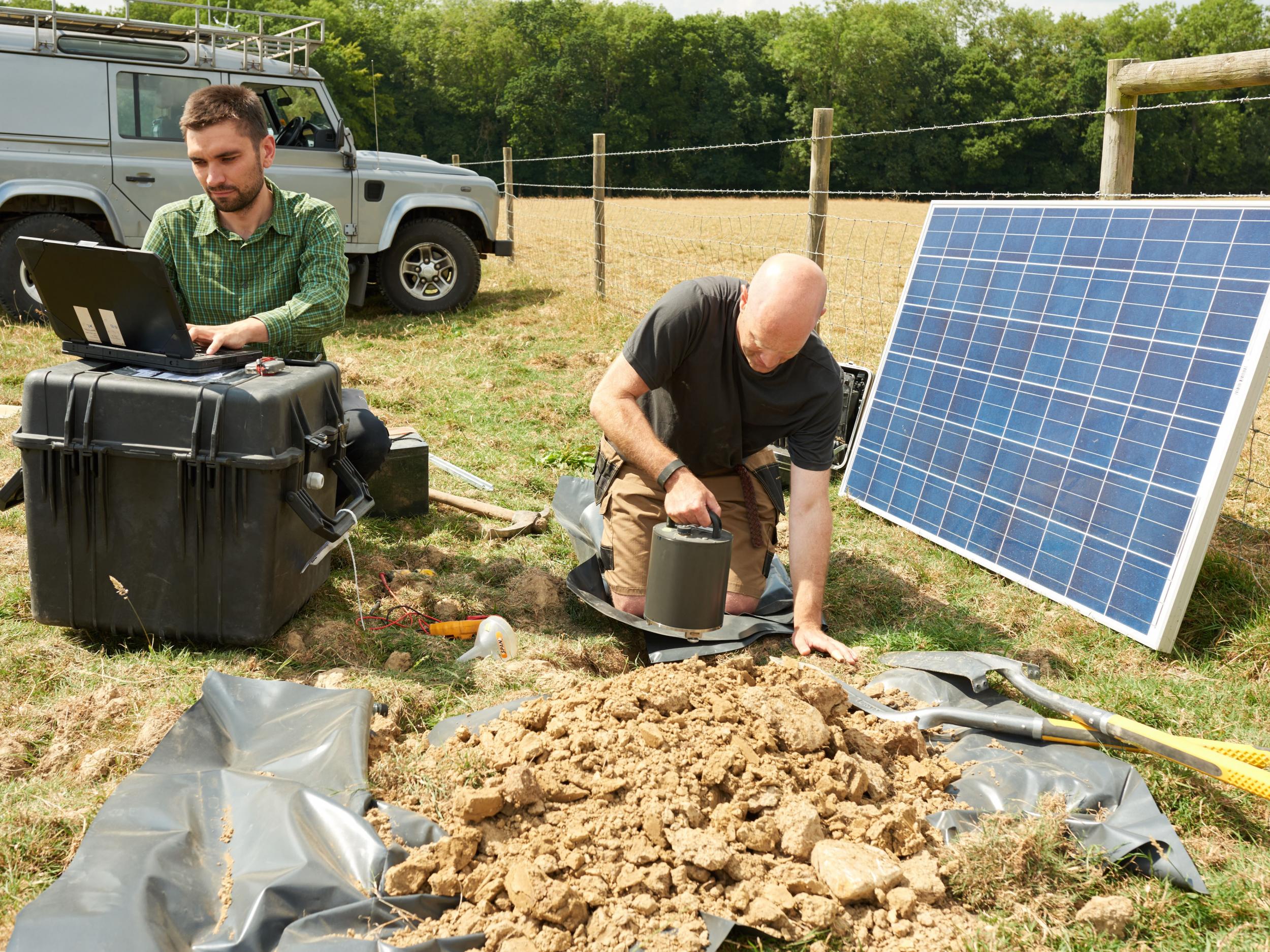Fracking ‘plausible’ trigger for swarm of earthquakes near Gatwick
Hundreds of people reported the tremors that took place over two years in villages in Surrey and Sussex
Your support helps us to tell the story
From reproductive rights to climate change to Big Tech, The Independent is on the ground when the story is developing. Whether it's investigating the financials of Elon Musk's pro-Trump PAC or producing our latest documentary, 'The A Word', which shines a light on the American women fighting for reproductive rights, we know how important it is to parse out the facts from the messaging.
At such a critical moment in US history, we need reporters on the ground. Your donation allows us to keep sending journalists to speak to both sides of the story.
The Independent is trusted by Americans across the entire political spectrum. And unlike many other quality news outlets, we choose not to lock Americans out of our reporting and analysis with paywalls. We believe quality journalism should be available to everyone, paid for by those who can afford it.
Your support makes all the difference.A swarm of earthquakes that shook houses in Surrey may have been caused by drilling operations in the area, a study has suggested.
Around 1,600 people reported the seismic activity, with some suffering cracked walls and others being shaken in their beds as tremors in the village of Newdigate, near Gatwick Airport, reached a peak magnitude of 3.18 in 2019.
Suspicions were soon aroused when it was discovered the epicentre of the tremors was near UK Oil & Gas’s drilling operaton at Horse Hil oil field - but research by the British Geological Survey found no link with the oil and gas works.

However, for years, environmentalists have blamed the nearby oil extraction for the quakes, and now a new report commissioned by University College London (UCL) appears to have strengthened their argument.
Matthew Fox and Philip Meredith ran computer simulations based on the location and magnitude of oil extraction suggesting that the earthquakes were induced by oil extraction.
“Our findings indicate it is plausible that oil extraction triggered the earthquakes,” said Dr Matthew Fox, lead author of the study.
Using the Bayesian mathematical model, the researchers predicted the number of earthquakes that might occur based on how much oil had been extracted, accounting for the two different rock types that oil was extracted from.
They also found that there had not been an earthquake in Surrey for decades, suggesting the link between fracking and the tremors.
Dr Fox added: “We cannot rule out that this link is a coincidence. More work needs to be done to understand if this is cause and effect.”
Members of the public said nearby buildings could be heard to creak and reported feeling a “large impact then two or three seconds of shaking” during the swarm of earthquakes that happened in 2018 and 2019.
Tremors were felt in Newdigate, Dorking, Horley and Charlwood in Surrey, and also Crawley and Horsham in West Sussex.
UK Oil & Gas controlled oil extraction at Horse Hill until October 2024, when planning permission from Surrey County Council was withdrawn following a court case brought by campaigners.
A spokesperson for the company told The Independent: “This is an incident that was answered and dealt with many years ago when the BGS seismologists were satisfied it was a natural event associated with movement on a deeper unassociated fault many kilometres deeper and distant from the site.
“Our focus is now on renewable energy and the storage of hydrogen in salt caverns in Dorset and East Yorkshire, fully in step with the government’s Clean Power 2030 target.”

Join our commenting forum
Join thought-provoking conversations, follow other Independent readers and see their replies
Comments